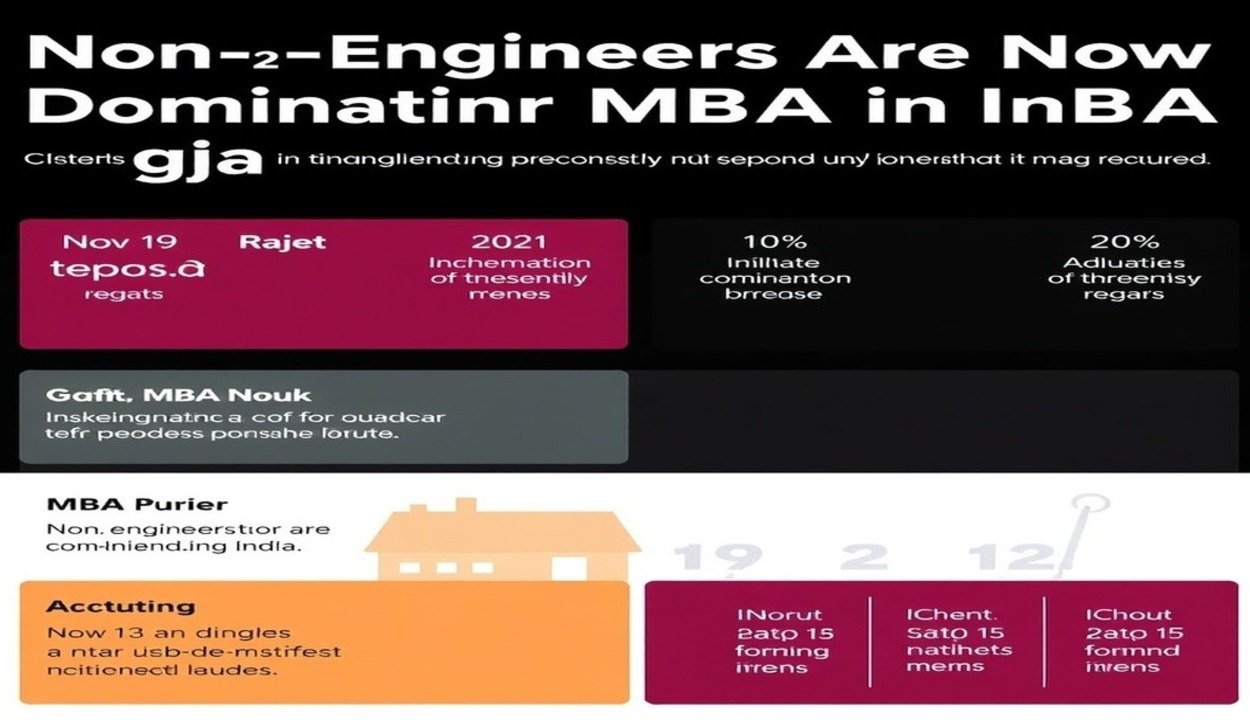Blog
“Non-Engineers Take the Lead: Transforming India’s MBA Landscape”

Non-Engineers Are Now Dominating MBA Programs in India
In recent years, the profile of students enrolling in MBA programs across India has witnessed a significant shift. Historically, engineering graduates formed the majority of MBA cohorts, but now, non-engineering students from backgrounds such as commerce, arts, sciences, and humanities are increasingly taking center stage. This trend reflects broader changes in the business landscape and the evolving demands of modern organizations.
Reasons Behind the Shift
Several factors contribute to the growing presence of non-engineers in MBA programs. First, the business world today requires multidimensional skill sets. Fields such as marketing, finance, human resources, operations, and entrepreneurship value diverse perspectives and problem-solving approaches. Non-engineers often bring unique analytical, creative, and communication skills that complement traditional technical abilities.
Second, business schools themselves have adapted their admission processes and curriculum to attract students from varied educational backgrounds. Many programs now offer specialized tracks and flexible electives tailored to non-engineers, making MBA education more accessible and appealing to a wider audience.
Statistical Perspective
Recent data from leading B-schools indicates that non-engineers now account for 50–60% of MBA enrollments in some institutions. This shift is particularly noticeable in disciplines like marketing, corporate strategy, and finance, where diverse perspectives enhance decision-making and strategic planning. Case discussions and collaborative projects benefit from this mix of academic experiences, leading to more innovative solutions.
Impact on the Classroom and Beyond
The influx of non-engineers has transformed the classroom environment. Discussions are richer, and problem-solving exercises benefit from a broader range of approaches. Students with humanities or commerce backgrounds often excel in leadership, communication, and critical thinking, complementing the analytical strengths of their engineering peers.
Moreover, companies increasingly value diverse talent pools, and graduates from mixed academic backgrounds are better equipped to handle complex, real-world business challenges. The presence of non-engineers in MBA programs is creating future leaders who can think holistically and navigate multifaceted organizational problems.
Looking Ahead
The trend of non-engineers dominating MBA programs is expected to continue in the coming years. As businesses seek versatile talent capable of adapting to rapid changes, B-schools are likely to further embrace diversity in student intake. This shift not only broadens opportunities for students from varied academic streams but also enriches the overall learning experience and strengthens India’s talent ecosystem.
Conclusion
India’s MBA landscape is evolving. Non-engineers are no longer a minority; they are driving innovation, bringing fresh perspectives, and preparing for leadership roles in diverse industries. For students considering an MBA, this trend highlights the increasing value of cross-disciplinary skills and the importance of adaptability in today’s competitive business environment.
- Trending








